DIVERSITY
IMMERSION IN GLOBAL FAMILY
INTERDISCIPLINARY
I
P
P
A
M
WHY IPPAM?
Impact in international perspective with a focus on issues at the community and societal levels.
Professional obligation to “tell truth to power,” ensure fairness, transparency, and self-efficacy.
Passion in doing the work entrusted in you by those you serve.
Accountable for what you do as a professional and as a person.
Motivated to make a difference in all that you do.
Inspired by Professor Emeritus Robert C. Myrtle, DPA
FLEXIBILITY
FUTURE DRIVEN
GLOBAL IMPACT
MEET OUR OUTSTANDING ALUMNI AROUND THE GLOBE
![]() MULTICULTURAL DIVERSITY
MULTICULTURAL DIVERSITY
USC is proud to host one of the largest numbers of international students in the United States.
International students at USC represent 135 countries. IPPAM has enrolled students from 40 countries. Shared values across a diversity of settings makes IPPAM a special place. IPPAM students celebrate their cultural traditions at festive events that include their children and spouses, making IPPAM a family-oriented program.
![]() IMMERSION IN GLOBAL CONTEXTS
IMMERSION IN GLOBAL CONTEXTS
IPPAM students build strong networks and close friendships.
The majority of students enrolled in IPPAM each year come from countries outside of the United States. While the US is an important reference point providing context for class discussions, the major emphasis is on exploring global implications of the critical public policy issues of our time. Recognizing that regional dynamics influence public policy in countries with shared geographic, political, economic, cultural, religious and ethnic characteristics, the program encourages a global outlook that avoids viewing public policy in any given country in isolation. The strength of the IPPAM Program is the students who bring knowledge of their countries and a unique perspective that allows for a robust give and take in class discussions through which all of us can truly learn from each other as we build a portfolio of best practices drawn from a palette of different countries.
Each year IPPAM hosts reunions in multiple countries to stay connected with alumni. As a result IPPAM is a community with excellent global networking.
![]() INTERDISCIPLINARY
INTERDISCIPLINARY
By drawing on the perspectives of different professions and a mix of disciplinary fields, the faculty in IPPAM draw connections between theory and real-world policy applications, providing insights that help to stimulate creative approaches to problem-solving
IPPAM offers multiple opportunities for students to develop interdisciplinary skills in advancing their policy making, project management and leadership skills. Client-based consulting projects challenge students to figure out how they can offer a creative, yet practical approach to addressing an organization’s problem. Given the multidimensional nature of most social issues, learning to harness the power of interdisciplinary teams by working collaboratively on these projects is a skill that will have lifelong benefits. Drawing on LA as a global economic hub and center of international trade, hi-tech and social innovation, IPPAM offers enrichment activities with local, national and global experts from RAND, the Milken Institute, the city halls of Los Angeles and some of the other 80 cities located in the region, the World Bank, the Asian Development Bank, and the United Nations.
![]() FLEXIBILITY
FLEXIBILITY
IPPAM is a program that is designed to be completed in two years, but may be accelerated to finish sooner.
The IPPAM degree ensures that students learn a core set of policy and management skills. At the same time, students joining the program have widely different professional backgrounds and aspire to different career goals. The curriculum is flexible enough to enable students to customize the degree to their individual interests and to develop an area of specialization through the choice of electives and through developing a master’s project in the final semester. The Price School provides an ideal setting for this hybrid cohort model due to the breadth of courses offered serving multiple professions and addressing many different aspects of public policy and social sector issues.
![]() FUTURE DRIVEN
FUTURE DRIVEN
IPPAM is designed to provide current and future policymakers and leaders with holistic knowledge and skills as they lead in today’s ever-changing world.
IPPAM offers enrichment workshops and labs in areas of emerging interest to supplement course activities. Recent workshops and seminars have included boot camps on big data analysis, machine learning, and Python; project management for consulting projects; explorations of regional dynamics in public policy as well as individual country discussions; and leadership development. In addition, IPPAM has arranged for students to attend professional conferences such as the American Society of Public Administration, fast pitch competitions for nonprofit organizations, and case challenges on hot-button topics. The program has organized visits to legislative offices in the state capital, Sacramento, and the nation’s capital, Washington, DC, and to local city hall offices. Students also can hone their leadership skills by being elective to the IPPAM Student Senate and by participating in volunteer activities as well as taking part in formative career development training and mentoring. In so doing, students learn the skills to become future leaders in their organizations.
![]() GLOBAL IMPACT
GLOBAL IMPACT
Studying at IPPAM fosters global engagement. The work of alumni has a global impact in spurring them to tackle issues and participate in regional institutions beyond the borders of their individual countries.
These future policymakers and leaders develop a global vision to have an impact on revitalizing communities and improving people’s lives. Studying in IPPAM will be a transformative experience that will propel your success and effectiveness today and in the future to come.


